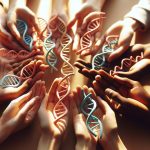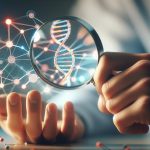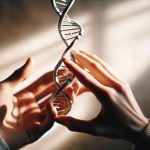At 18, Richard Hill uncovered a life-changing truth: he had been adopted. This revelation set him on a path that would span many years, as he embarked on a quest to find his biological parents. His groundbreaking use of DNA for this purpose made headlines in The Wall Street Journal, marking him as the first adoptee to successfully identify a biological parent’s surname through genetic testing. Spurred by his own experiences, Richard has dedicated himself to assisting others in similar situations. Through his website, DNA Testing Advisor.com, he offers guidance and shares the wisdom gained from his personal odyssey with fellow adoptees and those interested in genealogy. His story is not just one of discovery but also of hope and help for individuals seeking to uncover their roots and connect with their families.
What motivated you to start DNA Testing Advisor, and what’s your story?
After a long and challenging journey, I discovered my biological father thanks to DNA genealogy testing. This revelation was not just a personal victory but also an inspiration for countless adoptees struggling with closed adoption records. Motivated by this experience, I founded DNA Testing Adviser, a platform dedicated to guiding others on their quest to uncover their roots through genetic testing. My mission is to enlighten and support adoptees, family historians, and anyone else on a similar path of discovery. Through sharing knowledge and fostering connections, I aim to make the complex world of DNA more accessible, offering hope and new beginnings for many.
Exploring your roots and uncovering family secrets through DNA testing
The guide offers a wealth of advice on both genetic testing and traditional research techniques. It emphasizes the value of persistence, managing expectations wisely, and maintaining a friendly disposition towards all parties involved.
What’s the first step for beginners in genealogy to find out about their ancestry?
To embark on a journey of exploring your genetic lineage effectively, the initial move involves registering with all major autosomal DNA databanks. These platforms facilitate connections with others who share your genetic blueprint. A cost-effective approach is to first undergo testing through AncestryDNA and 23andMe. Following this, you can leverage the option to export your raw genetic information from these tests.
The subsequent step involves taking advantage of free services offered by other databases such as Family Finder, MyHeritage DNA, and Living DNA. By uploading your data onto these platforms at no extra charge, you maximize your exposure to potential genetic relatives without straining your wallet. This strategy not only broadens the scope of your search but also enhances the likelihood of uncovering meaningful connections within the vast tapestry of human ancestry.
What are the chances of locating one’s biological parents through DNA tests?
In a survey from mid-2019, nearly two-thirds of adoptees who tried DNA tests succeeded in finding a biological parent.
Alternative approaches if DNA tests fail

Consider enlisting the help of a search angel, who’ll lend their expertise in your quest without charging a dime.
How much time did it take to locate your birth relatives?
Figuring out who my mom was didn’t even take a full year, but sadly, she had already passed away. On the flip side, unraveling the mystery of my dad’s side was a whole different ball game—it stretched out to nearly a quarter of a century. And just when you thought that was it, I had to sit tight for several more years waiting on the edge of my seat for science to catch up. Finally, newer and sharper tests came along and cut through my dilemma like a hot knife through butter. These tests pointed me directly to one man among five brothers—all no longer with us—as my father. It was like finding the missing piece in a complex puzzle; challenging yet profoundly rewarding once everything fell into place.
Did you ever feel like stopping your search, and how did you get past that feeling?
Life often threw obstacles my way, making me pause my journey. Yet, I always found myself back on track, pushing ahead. It was sheer stubbornness to not throw in the towel that kept me going.
What technological advancements were key during your travels?
The internet’s growth has revolutionized how we access information, connect with others, and conduct our daily lives. Similarly, the rise of genetic genealogy DNA tests has transformed our understanding of ancestry, offering insights into our family histories that were previously out of reach. These advancements epitomize the modern era’s technological leaps, reshaping our world in profound ways.
How DNA discovery and internet advancements changed genealogy, and the future’s next major impact
In today’s world, the landscape of genetic research is being transformed by cutting-edge tools that streamline the process of analyzing genetic connections. These innovative solutions include mechanisms for automatically organizing genetic matches into clusters based on shared ancestors. This approach not only simplifies identifying familial ties but also enhances the accuracy of these findings.
Moreover, another set of tools takes this a step further by integrating DNA information with existing family trees. This fusion enables researchers to trace and establish likely relationships between individuals who share DNA similarities. It’s like piecing together a puzzle where each match brings you closer to seeing the full picture.
Additionally, there are advancements in technology that allow for the construction of tentative family trees directly from genetic data. Imagine being able to sketch out your lineage without flipping through old albums or sifting through archives—these tools make it possible.
As we continue to leverage these powerful technologies, we unlock more opportunities to understand our roots and connections in ways previously thought impossible. The integration of genetics with genealogical research is not just changing how we view our past; it’s revolutionizing the field entirely, making it more accessible and insightful for everyone involved.




















